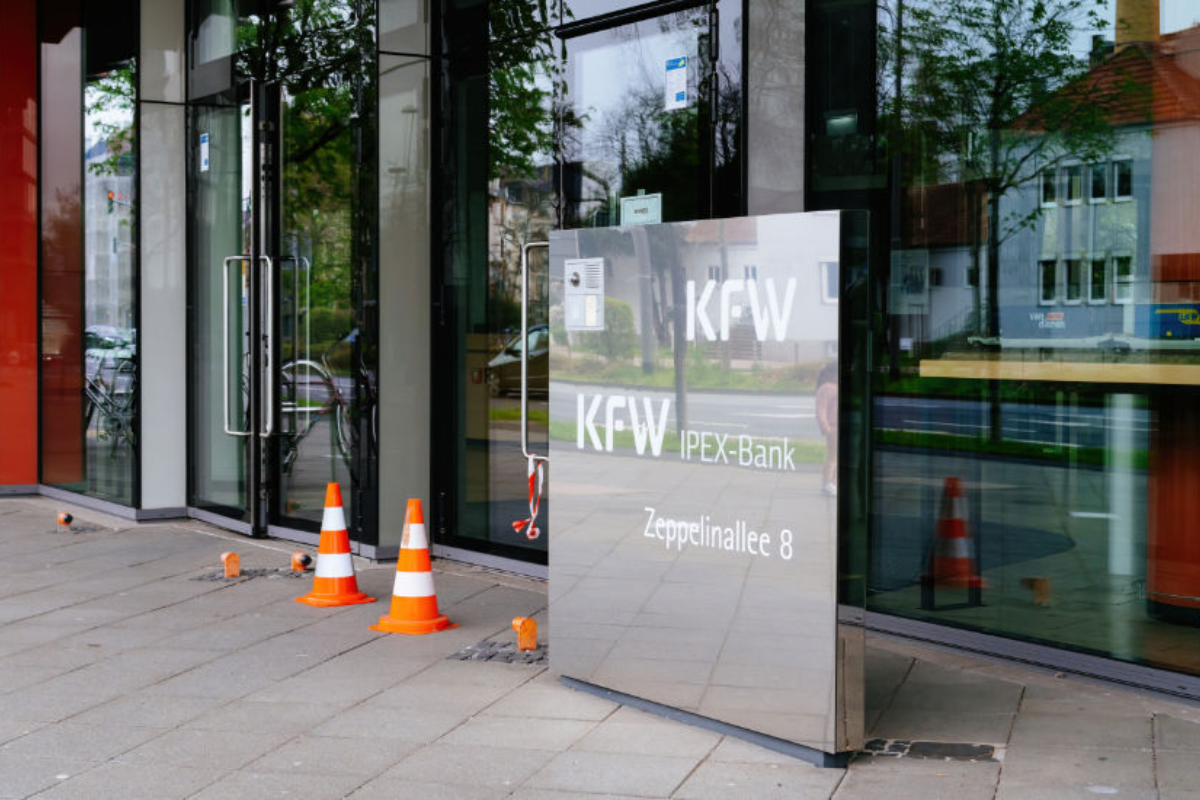Blockchain Press Releases
The Return of Major Players to the Solid Oxide Fuel Cell Market Could Lead to Growth, Finds IDTechEx

BOSTON, July 7, 2023 /PRNewswire/ — Following several decades of research and development, fuel cells are beginning to enable the promise of low-emission power generation, with specific success seen for proton exchange membrane fuel cells (PEMFC). However, the major negative aspect of PEMFC is the necessity for ultra-high purity hydrogen. Solid oxide fuel cells (SOFC) overcome this issue due to the ability to operate on multiple fuels and, as such, offer promise in a wide range of applications. Initially struggling to gain commercial traction, many large players are now (re)entering the SOFC market. Will this new activity drive SOFCs toward the fore of a clean energy infrastructure?
The new IDTechEx report, “Solid Oxide Fuel Cells 2023-2033: Technology, Applications and Market Forecasts“, provides a comprehensive overview of the solid oxide fuel cell market, including an assessment of the key technology trends, major players and also includes granular 10-year market forecasts for solid oxide fuel cell demand (MW) and market value (US$), segmented by application areas. IDTechEx project the market value to reach US$6.8 billion by 2033.
A SOFC stack consists of hundreds of individual cells, with each cell made up of an electrolyte material between an anode and cathode, which are, in turn, between interconnects. High operating temperatures are a double-edged sword for SOFCs; enabling fuel flexibility due to the capability to internally reform light hydrocarbons but introducing stresses caused by any mismatched thermal expansion coefficients of neighboring components. Due to this, SOFCs are best suited to continuous, steady state operation to minimize the change in temperature during ramp up/down. The capture of the hot exhaust can be used to provide thermal energy in an operating mode referred to as combined heat and power (CHP), raising the overall efficiencies of the fuel cell system towards 90%.
Despite these positive and promising aspects of SOFCs, with opportunities in many markets ranging from utility-scale power generation to off-grid residential applications, many large players exited the market between 2010 and 2018. Siemens Energy was an early mover in the market in the early 21st century, but the focus shifted to PEM fuel cells and electrolyzers. Delphi produced a SOFC auxiliary power unit (APU) for heavy-duty trucks circa 2010, but little commercial activity has been seen recently, including after its acquisition by BorgWarner. Ballard is a recognizable name in the fuel cell industry and was one of the first major players to enter the SOFC market when it acquired Protonex in 2015. However, this new solid oxide division was quickly divested in 2017, leading to the formation of Upstart Power. Perhaps the most notable movement was seen when LG Fuel Cell ceased operations alongside Rolls Royce Fuel Cell Systems in 2018, despite reportedly investing over $350m into SOFC R&D and launching a prototype system.
Haldor Topsoe was another company to cease activity when the focus was shifted to solid oxide electrolyzers in 2014, however arguably, the first green shoots of recovery for the market were seen when Haldor joined the SOFC4Maritme project in 2021 with a focus on marine applications. GE Power Conversion also returned to the market in 2021. Previous activity was seen between 2006 and 2014 before a partnership was announced with Ceres Power in 2021 – also focusing on the marine sector, particularly cruise ships. Ceres operate a licensing model and have entered into partnerships with several large players, such as Bosch, Weichai, and Doosan, with high-volume manufacturing of the licensed SOFC technology to commence in the coming years. In terms of internal R&D, Cummins is developing SOFC technology of its own and stated to IDTechEx that system availability is set for 2024. Regulation and economic policy are driving the demand for fuel cells in the APAC region specifically, and a JV has been established between Noritake, Toto, and NGK Spark Plug, targeting the commercial launch of SOFCs by 2025. Further information regarding partnerships, ongoing research and development, and technological trends is provided in the IDTechEx report.
So does the movement of big players towards the SOFC market, either entering or returning, indicate impending growth for the sector? The hype must be tempered by comparing to the status of PEMFCs, which are the leading solution for fuel cell power in the mobility sector for a variety of reasons, while also being better suited to emergency power than SOFCs due to shorter ramp up times and longer lifetime across multiple cycles. Despite strong opportunities in sectors requiring 24/7, always-on power, such as commercial and industrial applications, the annual installation for SOFCs is expected to be an order of magnitude lower than that for PEMFCs across the coming decade. However, these promising opportunities, coupled with fuel flexibility and the onset of high-volume manufacturing by big players, could accelerate the growth of the SOFC market and change the outlook of the fuel cell industry over the coming decade.
For more details on the SOFC technology, market trends, and key and emerging players, see the IDTechEx market report “Solid Oxide Fuel Cells 2023-2033: Technology, Applications and Market Forecasts“, with further coverage of marine applications for fuel cells provided in “Fuel Cell Boats & Ships 2023-2033: PEMFC, SOFC, Hydrogen, Ammonia, LNG“.
About IDTechEx
IDTechEx guides your strategic business decisions through its Research, Subscription and Consultancy products, helping you profit from emerging technologies. For more information, contact [email protected] or visit www.IDTechEx.com.
Images download:
https://www.dropbox.com/scl/fo/fkqv71z9h3rj2vtlb2tmm/h?dl=0&rlkey=rsy44hyp8nfnjpdon7d1yf5k1
Media Contact:
Lucy Rogers
Sales and Marketing Administrator
[email protected]
+44(0)1223 812300
Social Media Links:
Twitter: www.twitter.com/IDTechEx
LinkedIn: www.linkedin.com/company/IDTechEx
Photo – https://mma.prnewswire.com/media/2149082/IDTechEx.jpg
Logo – https://mma.prnewswire.com/media/478371/3968647/IDTechEx_Logo.jpg
![]() View original content:https://www.prnewswire.co.uk/news-releases/the-return-of-major-players-to-the-solid-oxide-fuel-cell-market-could-lead-to-growth-finds-idtechex-301872054.html
View original content:https://www.prnewswire.co.uk/news-releases/the-return-of-major-players-to-the-solid-oxide-fuel-cell-market-could-lead-to-growth-finds-idtechex-301872054.html

Blockchain
Proposed US Blockchain Integrity Act would ban crypto mixers for 2 years

A new bill introduced in the U.S. House of Representatives, known as the Blockchain Integrity Act, seeks to address concerns surrounding the use of cryptocurrency mixers and tumblers. The proposed legislation aims to regulate these privacy-enhancing tools, which are often used to obscure the origins of cryptocurrency transactions.
The bill, if passed into law, would impose strict regulations on the operation of cryptocurrency mixers and tumblers within the United States. These tools, which allow users to mix their funds with those of other users to obfuscate the transaction trail, have raised concerns among law enforcement agencies and regulators due to their potential use in money laundering, terrorist financing, and other illicit activities.
Under the Blockchain Integrity Act, operators of cryptocurrency mixers and tumblers would be required to register with the Financial Crimes Enforcement Network (FinCEN) and comply with anti-money laundering (AML) and know-your-customer (KYC) regulations. Failure to register or comply with these requirements could result in significant penalties, including fines and imprisonment.
The proposed legislation also seeks to empower law enforcement agencies to investigate and prosecute individuals and entities that operate unregistered cryptocurrency mixers and tumblers. By enhancing regulatory oversight and enforcement capabilities, the bill aims to safeguard the integrity of the blockchain ecosystem and prevent the illicit use of cryptocurrencies.
However, critics argue that the Blockchain Integrity Act could stifle innovation in the cryptocurrency space and infringe on individuals’ privacy rights. They contend that while cryptocurrency mixers and tumblers can be used for illicit purposes, they also serve legitimate privacy-enhancing functions, such as protecting users’ financial privacy and security.
The introduction of the Blockchain Integrity Act reflects growing concerns among policymakers about the potential risks associated with cryptocurrencies and their use in illicit activities. As lawmakers continue to grapple with these issues, it remains to be seen how the regulatory landscape for cryptocurrencies will evolve in the United States and around the world.
Source: cointelegraph.com
The post Proposed US Blockchain Integrity Act would ban crypto mixers for 2 years appeared first on HIPTHER Alerts.
Blockchain
Government-owned KfW elaborates on blockchain digital bond plans

The government-owned KfW Bank, based in Germany, is delving further into its plans to issue digital bonds leveraging blockchain technology. This move underscores the institution’s commitment to exploring innovative financial solutions in the digital age.
The proposed digital bond issuance is poised to mark a significant milestone for KfW, as it seeks to embrace the transformative potential of blockchain technology. By tokenizing bonds on a blockchain platform, KfW aims to streamline the issuance process, enhance transparency, and optimize operational efficiency.
One of the key advantages of digital bonds lies in their potential to reduce the reliance on intermediaries and streamline the entire bond lifecycle. Through blockchain-based tokenization, KfW aims to automate various aspects of bond management, including interest payments and maturity settlements, thereby reducing the need for manual intervention and minimizing operational costs.
Moreover, digital bonds have the potential to enhance liquidity in the secondary market, allowing investors to trade bonds seamlessly on digital asset exchanges. This increased liquidity could attract a broader range of investors, thereby diversifying KfW’s investor base and potentially lowering borrowing costs.
In addition to the issuance of digital bonds, KfW is also exploring the integration of blockchain technology into other areas of its operations. By leveraging blockchain for various use cases, such as trade finance and supply chain management, KfW aims to unlock new efficiencies and drive greater transparency across its ecosystem.
Overall, KfW’s foray into blockchain-based digital bonds underscores its commitment to innovation and its recognition of the transformative potential of blockchain technology. As the institution continues to explore and implement blockchain solutions, it is poised to stay at the forefront of digital innovation in the financial sector.
Source: ledgerinsights.com
The post Government-owned KfW elaborates on blockchain digital bond plans appeared first on HIPTHER Alerts.
Blockchain
Blockchain education initiatives take off amid crypto bull market

During the recent crypto bull market, blockchain education initiatives have gained significant traction as individuals seek to capitalize on the growing opportunities in the digital asset space. These initiatives aim to empower enthusiasts, developers, and professionals with the knowledge and skills needed to navigate the complex world of blockchain technology and cryptocurrencies.
As interest in blockchain continues to soar, educational platforms and programs have emerged to cater to the diverse needs of learners. These initiatives offer a wide range of courses, workshops, and resources covering various aspects of blockchain technology, including smart contracts, decentralized finance (DeFi), non-fungible tokens (NFTs), and more.
One of the key drivers behind the surge in blockchain education is the growing demand for blockchain talent in the job market. With companies across industries exploring blockchain solutions, there is a pressing need for skilled professionals who can design, develop, and implement blockchain-based applications. As a result, individuals are increasingly turning to educational initiatives to gain the necessary expertise and credentials to pursue lucrative career opportunities in the blockchain space.
Moreover, the crypto bull market has fueled interest in cryptocurrencies and digital assets, prompting individuals to seek comprehensive education on topics such as trading, investment strategies, and risk management. Blockchain education initiatives play a crucial role in providing individuals with the knowledge and tools they need to make informed decisions in the fast-paced and volatile crypto market.
In addition to traditional educational platforms, blockchain-focused communities, forums, and online resources have become invaluable sources of learning and knowledge-sharing. These communities provide a supportive environment for enthusiasts and professionals to exchange ideas, collaborate on projects, and stay updated on the latest developments in the blockchain industry.
Overall, blockchain education initiatives are playing a vital role in democratizing access to blockchain knowledge and empowering individuals to participate in the digital economy. As the crypto bull market continues to fuel interest in blockchain technology, these initiatives are expected to play an increasingly important role in shaping the future of the industry and driving innovation across sectors.
Source: cointelegraph.com
The post Blockchain education initiatives take off amid crypto bull market appeared first on HIPTHER Alerts.
-

 Blockchain Press Releases7 days ago
Blockchain Press Releases7 days agoBitrue expands Bitcoin Runes Offerings with GPTV Listing and Staking Options
-

 Blockchain Press Releases3 days ago
Blockchain Press Releases3 days agoTiger Brokers (HK) officially launches virtual asset trading services, leading the way in Hong Kong’s online brokerage industry
-

 Blockchain3 days ago
Blockchain3 days agoTop 10 Sessions You Can’t Miss at MARE BALTICUM Gaming & TECH Summit 2024 (Tallinn, Estonia, 4-5 June)
-

 Blockchain Press Releases1 day ago
Blockchain Press Releases1 day agoHTX Collaborates with Astar Network to Accelerate Blockchain Innovation through the TGE Catalyst Grant
-

 Blockchain7 days ago
Blockchain7 days agoRevoluGROUP Announces CEO and Director Stepping Down
-

 Blockchain7 days ago
Blockchain7 days agoWadzPay Plans to Expand Portfolio into Stablecoin Business
-

 Blockchain2 days ago
Blockchain2 days agoEthereum Developers Target Ease of Crypto Wallets With ‘EIP-3074’
-

 Blockchain Press Releases2 days ago
Blockchain Press Releases2 days agoSecure, Compliant but Flexible: FinchTrade Elevates Crypto Custody Offering with Fireblocks



























